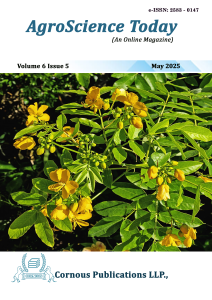Cassia occidentalis, commonly known as coffee senna, is a widespread weed recognized for its medicinal properties and potential as a biopesticide. This study assesses the pesticidal and fungicidal efficacy of C. occidentalis against various agricultural pests, including aphids, caterpillars, and termites and fungal pathogens. The plant contains several bioactive compounds, which contribute to its insecticidal and fungicidal properties through mechanisms such as disruption of cell membranes and interference with metabolic processes. Experimental results in available literature demonstrate that extracts from C. occidentalis significantly reduce pest populations, enhancing crop health and yield. The application methods, including aqueous extracts and powdered formulations, prove effective across varying concentrations, underscoring the adaptability of this plant as a natural pesticide. Furthermore, the environmentally friendly nature of C. occidentalis provides an alternative to synthetic pesticides, minimizing the risks associated with chemical residues on food and non-target organisms. This article highlights the potential of C. occidentalis as a sustainable pest management strategy that aligns with integrated pest management practices. Future studies should focus on optimizing extraction methods, application ratios, and understanding the interactions between C. occidentalis and diverse pest populations to fully harness its potential in agricultural systems.
